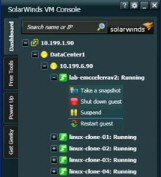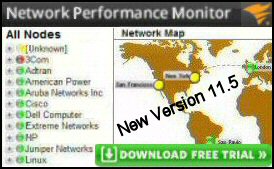Guy’s Ezine 141 – Defrag Litmus TestThis week I want to return to my roots, and feature a good old fashioned Guy’s litmus test. Long-time readers of my newsletters may remember how I like to create simple tests which help new techies discover if their organization is run by amateurs or professionals. Litmus Test – How often do you defrag your computers? Professionals say: ‘I Defrag my hard disks every 3 months’ Amateurs say: ‘What is de Frag’? Why Defragment your disks?Firstly, why are we bothering with a defrag? The answer is to speed up your computer in general, and disk access in particular. Big database files benefit most from defragmentation. However, if any file is stored in one contiguous area of the disk, then it’s only common sense that it will be quicker to access than if the same file is stored as 20 fragments. Secondly, more good things will happen once you plan a defrag. You may think ‘hmm… this could be a good time to delete unwanted files. So, why don’t I take this opportunity for a clear-out of the temp or tmp folders?’ Thirdly, a defrag may trigger you into undertaking other disk related tasks, for example investigating corrupted files with chkdsk. And on XP there are restore points; do you need all those copies? If so, can they be defragged? The answer is yes, but only if you temporarily stop srservice, the Shadow Copy Service. Incidentally, another benefit of defragging your disks is that backup will be quicker. If a defrag is worth doing, then it’s worth doing properly.Begin by temporarily disabling your virus checker. Real-time virus checkers and defrag don’t get along, they fight each other and the system grinds to a halt. My friend ‘Barking Eddie’ defrags his computers in ‘Safe Mode’, he claims that this allows more files to be defragged. Eddie reason that in normal usage the system, or a database, locks files so they cannot be defragged, but in safe mode only the essential files are in loaded into memory. There again, Eddie is obsessive in getting his machine to run as fast as possible. If you have the luxury of a second disk, evaluate which files should be stored on which disks. For example, the pagefile is best stored on the second disk so it’s not in contention with the system files. A real professional would also compress rarely used files, especially graphics files. Paul DeBrino recommends Winzip version 9, or 7-zip. There again, you could use the built-in compression capabilities of XP or Vista. However, if you get sent .RAR files then 7-zip will unpack them, whereas the built-in Windows compression tools will not. If I could digress; since compressing files is something you rarely undertake, don’t be proud and call for the built in help. While I knew all about right-clicking a file, and selecting: Send To, Compressed (Zipped) Folder. However, consulting help reminded me about creating compressed folders. Help also helped solve the mystery why compression was not on the menu of one of my friend’s XP computers – it was a 64bit version that does not support compression. One more thing, few professionals ever admit to using help, however the best techies consult help when nobody is looking and pass-off the knowledge as their own. Guy Recommends: A Free Trial of the Network Performance Monitor (NPM) |



